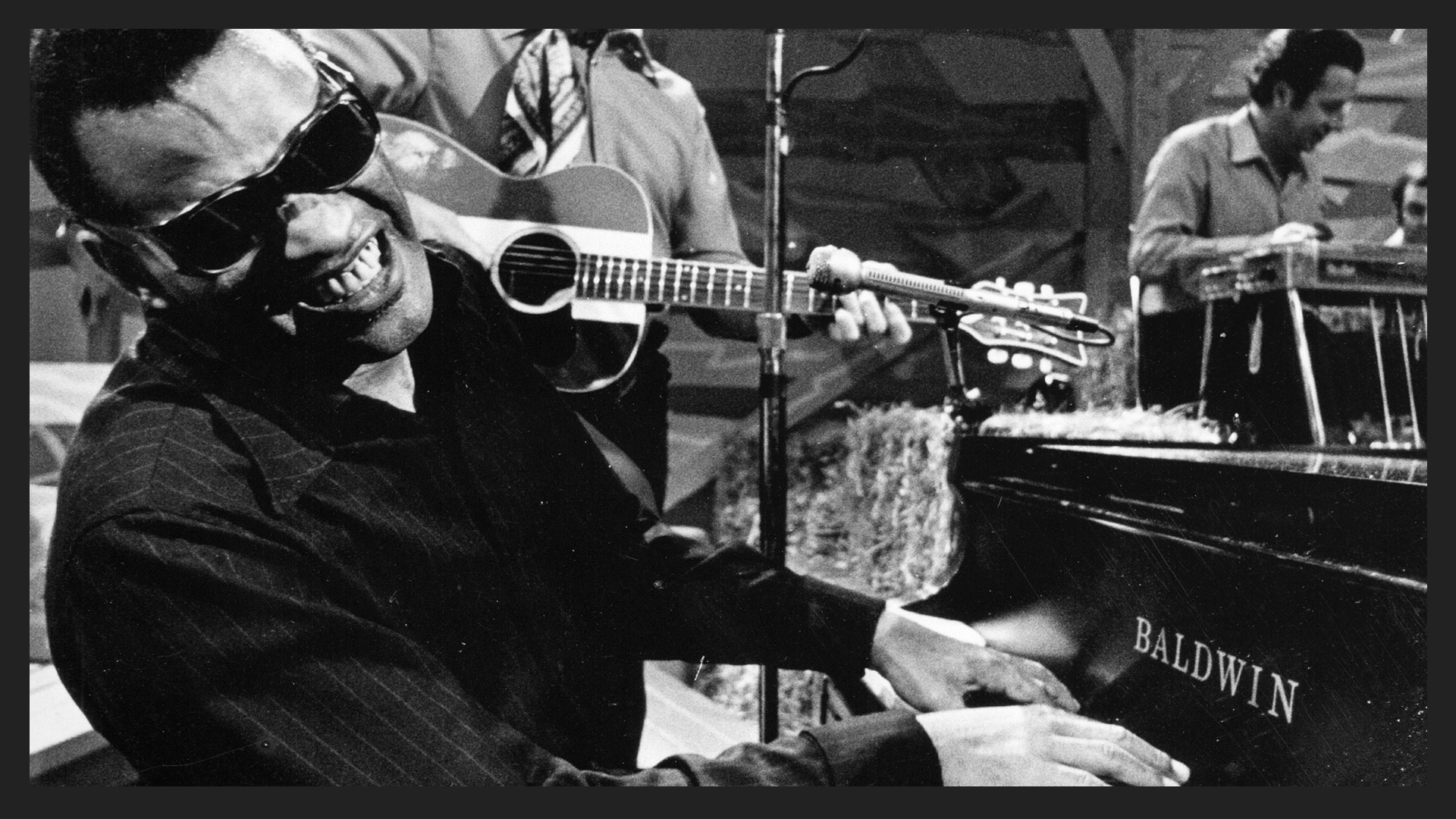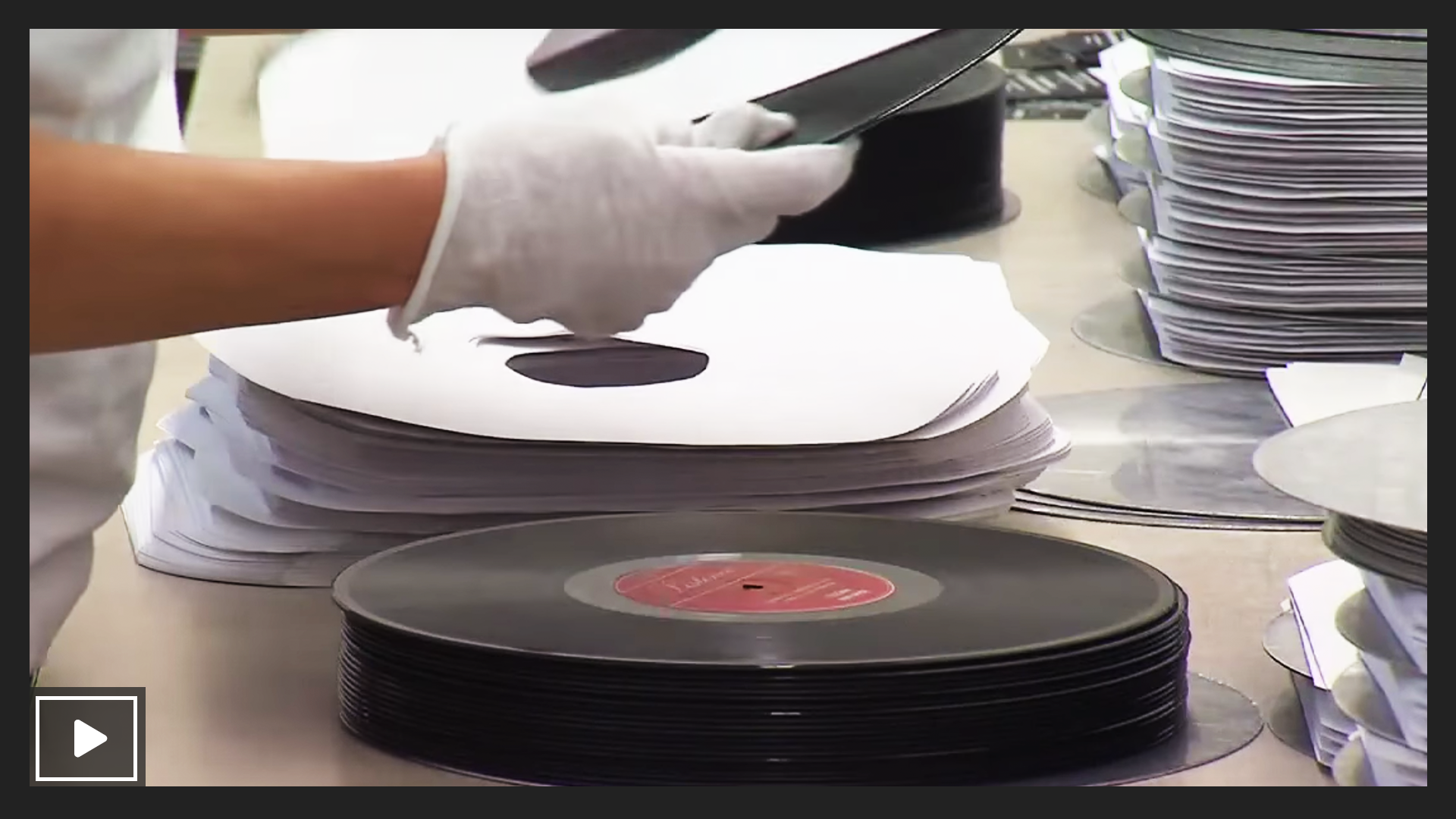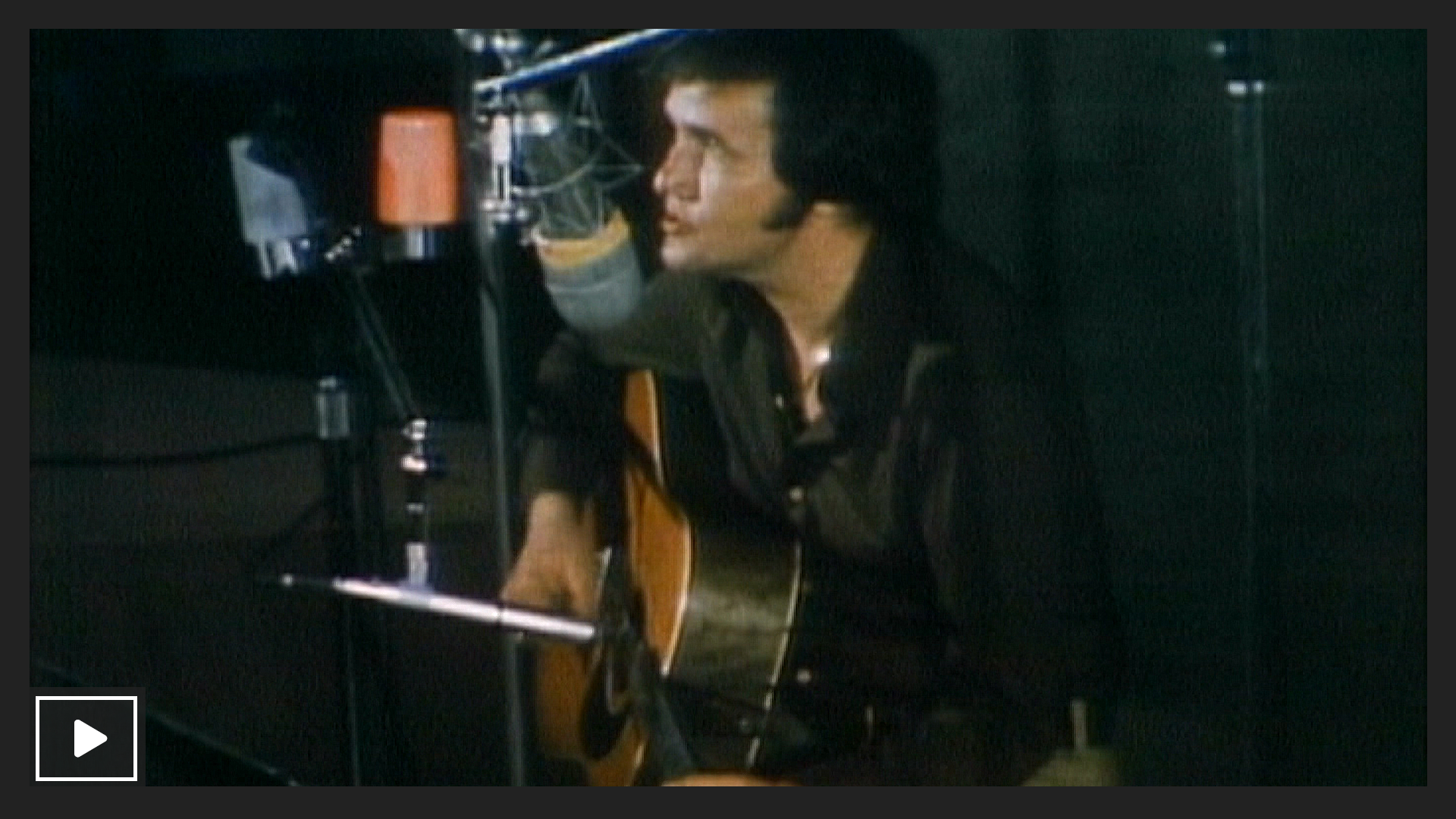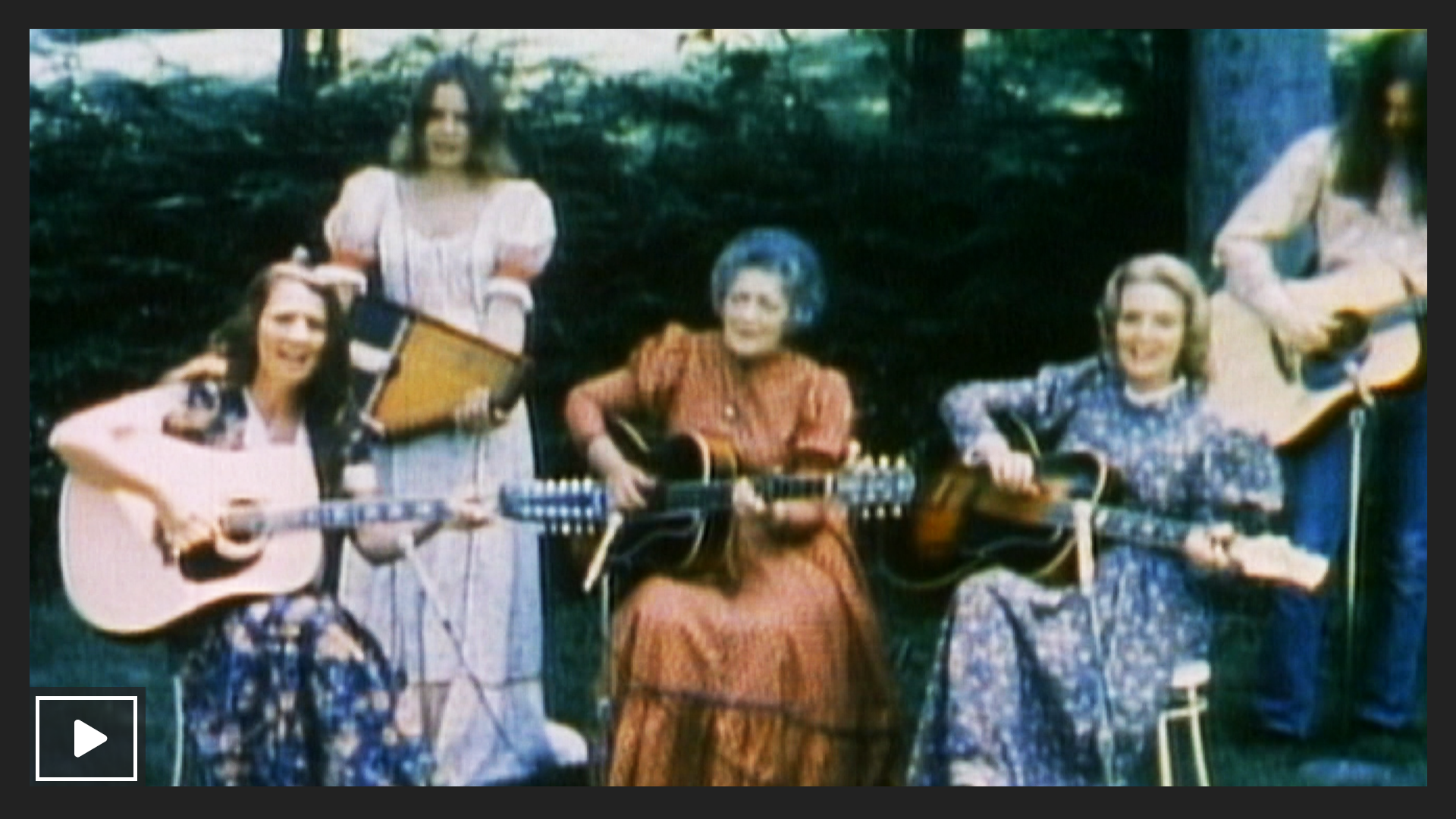
Explore the Sound created by Nashville Country Music Artists.
DeFord Bailey
“One day I was in the yard and she heard me playing. She said, 'I didn't know you could play like that. How long have you been playing?' I told her, 'all my life,' From then on she had me stand in the corner of the room and play my harp for her company. I'd wear a white coat, black leather tie, and white hat. I'd have a good shoeshine. That all suits me. That's my make-up. I never did no more good work. My work was playing the harp.”
– DeFord Bailey –
+ Transcript
- [Radio Announcer] And now friends we introduce DeFord Bailey with his harmonica.
- [Narrator] He was one of the first solo stars of the Grand Ole Opry. When I heard that music. Boy, you get chills.
- [Narrator] On stage, country music fans adored Deford Bailey's black hillbilly sound. Off stage, he wasn't allowed to eat, sleep or socialize with this fellow performers and fans. He almost caught pneumonia sleeping in cars because he was a colored boy.
- [Narrator] At the height of his career, he vanished from the spotlight. DeFord Bailey, a legend lost.
- [Radio Announcer] Presenting the Grand Ole Opry, let 'er go boys.
- [Narrator] A generation before America credited Charlie Pride with breaking the color barrier in country music, black listeners across the south were not only tuning in to country, but tuning up to play along. The very first solo star in the footlights of the Grand Ole Opry stage was a frail, disabled black man from Smith County, Tennessee.
- [Radio Announcer] And now friends, we introduce our little mascot DeFord Bailey with his harmonica.
- [Narrator] Nicknamed the Harmonica Wizard, DeFord Bailey took no credit for his unique sound and rolled into history. He simply said it was a blessing from above that came by way of a curse. His mother died before he turned one and soon another tragedy would strike. Father had polio at three years old. And they thought he would never walk. And he could move only his arms. He was given this harmonica to play with.
- [David] And he was lying in a bed for an entire year. And the way that he was able to entertain himself was making music. There was nothing that he saw or heard, that he didn't think about the musical qualities in that.
- [DeFord] I pick up everything I hear around me, I'm getting like a microphone. Cow, chickens, dog, they got music in 'em, all of 'em.
- [Narrator] These rural sounds became a trademark in DeFord's music. While sick, his widowed father couldn't care for him. An aunt stepped in to try and save his life. She started looking for ways that she needed to do things to make him more limber. They took owls, because owls can move their head around, and so she thought maybe this would help, they would kill an owl and take the oil from the owl and treat him with that. Everything that they could think of that might help.
- [Narrator] Her persistence paid off. DeFord survived the polio, though it left its mark, a permanent limp, hunch back and stunted growth. Even as an adult, he measured just 4'll and weighed less than 100 pounds.
- [David] He didn't think it was just an accident that he had had polio. If he had been physically active and able to get out and play ball like other kids, that he would not have spent that time working on his music.
- [Deford] If I don't blow my harp, I hurt. God put that on me, make me play. If I only played where I couldn't play, he showed me how to stop the pain by mouth like I was playing.
- [Narrator] For DeFord Bailey music was not only a physical need, but a birthright.
- [David] All of his family was musical. His natural parents, his foster parents, his uncles, his aunts, his grandfather, his grandfather who had been a slave, he was a champion fiddler. We're talking about a family of musicians. And DeFord was born into that, he benefited from it. His best memories as a kid are of the nights when the folks would get together and make music.
- [DeFord] The Baileys could play a harp, a banjo, all string music. We was known from slavery times as the best musicians. At the turn of the century there were black string bands all over Tennessee, and in fact, all over the south. It's not surprising because in the slavery days, a talented musician was taught to play the fiddle so he could entertain at plantation dances. After emancipation, many of these fiddlers kept their instruments, developed their own fiddling styles and their own battery of tunes and created an entire tradition of fiddle and banjo music.
- [Narrator] Long after his fiddler grandfather was gone, DeFord continued his musical tradition in his own play. He was also part of a growing trend. All over the south fiddle licks were being replaced by the howl of a harmonica. Firmly grounded in his musical roots, DeFord would create a sound all his own. He had incredible range, he was very fast. A lot of trills, a lot of vocal effects. So it was really very innovative. I think very far reaching and very visionary.
- [Narrator] A vision he developed first with his ears not his eyes. He captured the sound of a moving train years before he ever saw one. As a teenager he perfected his sound by hiding under the trestle as the train went by.
- [DeFord] I would get up under it, with my hands over my eyes, listen to the sound, then play that sound all the way to school.
- [Narrator] At 19, he road the train into Nashville's Union Station, his feet didn't even touch the floor. When the conductor insisted he buy a child's ticket he protested. It signaled the beginning of a lifelong battle to overcome many obstacles based solely on his physical appearance. In 1918, when he moved to Nashville, it was a big city. I mean, he'd always lived in small communities, he lived on farms around Tennessee, and then here he is in a big thriving city, and it was exciting for him. He heard Louis Armstrong play and he got exposed to all kinds of other music.
- [Narrator] Music he used to create a new style of playing that won him a regular spot on Nashville's WDAD, a radio station broadcast up the street from WSM Studios. He was playing the harmonica on his job, and Dr. Herman Bates heard him and said, "Why don't you come up stairs and play for us?" He said, "Oh no, they got some shiny horns." That's the way he talked you know he, very comical. And my little harp wouldn't do anything.
- [Narrator] Dr. Bate disagreed and insisted DeFord join his band, the Possum Hunters, on the new WSM Saturday Night Barn Dance Radio Show. His daughter Alcyon was in the band.
- [Alcyon] DeFord started right in with Daddy and Mr. Hay says, "Who is this?" Daddy says, "Now Judge, don't question me "about this boy." And Mr. Hay says, "Well Doc, he can't go on the air "without an audition." Daddy says, "Judge, I will stake my reputation "on the ability of this boy." And he went on the air, without an audition. And Mr. Hay heard him play these first few bars and he just knocked him out. He just threw his whistle down on the floor. That's an actual fact. Once he heard the quality of that music, there was no going back. This was not tokenism, this was not any effort to integrate, this was purely the fact that he knew he had a draw, he had someone who could help build the show. Unlike anybody else in the Grand Ole Opry at that time, when DeFord came out to perform, it was just him. He just went out there, climbed up on that little Coca-Cola carton in front of the microphone and just played the daylights out of that harmonica. And he would do that for 15 minutes at every show. It was so distinctive, it was so individualistic and it was so different from everything that was out there. He was doing things technically that people didn't think were possible on his instrument at that time.
- [Narrator] His technical abilities also inspired the idea for one of the most famous and enduring names in country music. One night in 1927, the NBC Studios opera show signed off playing a classical piece of music imitating a modern locomotive. As a segue to local acts on WSM, Judge Hay introduced DeFord Bailey and his "Pan-American Blues". And after DeFord's performance, Judge Hay said, "For the past hour, we've been listening to music "taken largely from Grand Opera, "and from now on we'll present the Grand Ole Opry." ♪ Opry, let 'er go boys. ♪ Every Saturday night the line, rain, snow, sleet or hail, they were there to hear DeFord Bailey. It was unbelievable. That little guy, had such a little instrument would draw in a big crowd. ♪ Get ♪ ♪ Ticket ♪ ♪ Here here ♪ ♪ Ticket ♪ ♪ Get ♪ I can still here Daddy play the "Fox Chase" and the "Pan-American" when the Solemn Old Judge would say, "Now we'll bring on DeFord Bailey." And that's when we would all start hollering. We used to come here when we was babies. And hear the wonderful music that the people played. And see a little bitty man come out on the stage, with a blue coat on and a cap on, and white pants. My dad talks about how he didn't wanna miss a single Saturday night, because he wanted to hear the Opry, but he particularly wanted to hear DeFord Bailey. DeFord was probably the most influential harmonica player in the south for about 30 years. Today, almost any harmonica player either directly or indirectly can be traced back to DeFord's playing. In the early days of the Grand Ole Opry, it wasn't completely unheard of for African American performers to be on the show. What was unusual, that they would emerge as stars of the magnitude that DeFord was.
- [Radio Announcer] Wake up here--
- [Narrator] But he was a star that was heard, not seen.
- [Radio Announcer] DeFord Bailey and it'll be his famous "Fox Chase", all right DeFord.
- [Narrator] Many believe that's how DeFord remained a favorite act on the Opry stage. You know he was not on display a lot. So they didn't know whether he was black or white. He could probably never have been on the Grand Ole Opry had it been televised initially. There was a strong fear that people, as they were knitting and listening to the Grand Ole Opry on a Friday night, somehow they would say, we're not gonna listen to that, because a black man is playing the harmonica. They did not advertise on the Opry that he was black. Some of the depictions that I've seen show him as a little boy on a bicycle. So clearly the audience knew that he was a small person and they assumed very young. But there was not an intentional effort to promote the fact that he was black.
- [Narrator] Ironically, as DeFord's music was growing in popularity, its roots were dying. What happened to black hillbilly music, as DeFord called it, was really kind of tragic. It didn't die out of its own accord. When the record companies began recording southern music in the 1920s, they themselves segregated the music into white and black series. Because of this artificial segregation that existed in the record companies, the black string bands were virtually ignored, and gradually, the younger musicians that would have been carrying on the tradition, moved into blues or gospel music. The fact of the matter is that black people have always listened to white people's music, and white people have always listened to black people's music. And that the fear has been more on the people who controlled the industry than anything else.
- [Charles] If you look at some of the greatest names in the Country Music Hall of Fame, the Carter Family ♪ Single girl, single girl ♪ Bill Monroe, Hank Williams. Each one of these people learned directly from an African American musician. Not just indirectly, not from records. They actually had a mentor who sat down with them, and showed them how to do things.
- [Narrator] DeFord Bailey was the first African American musician who was not just a mentor, but a maverick in the country music genre. For a short time, he defied the industry standard and successfully shared his musical tradition with a mostly white audience. He would have been a reverse Elvis, if you wanna put it that way. I think that we would have seen him as a bridge between black music and white music, particularly with regards to country. He tried to enlarge the scope of country music and to bring into it, blues, gospel music, novelty songs and popular music. And this was long before the idea of a cross-over hit had even crossed anybody's mind. People respond to greatness. They don't necessarily care where the greatness came from, what the greatness looks like. And people could inherently sense that this was somebody who was a once in a lifetime performer, somebody who was great, this was somebody who they were privileged to see.
- [Narrator] In the 1930s, they got their time when the Opry went out on the road. To show how popular DeFord was, every new group that came to the Opry took DeFord Bailey with 'em, out on the road. They took him out to draw their crowds. All the new shows, Bill Monroe, Roy Acuff. I was an unknown, and DeFord traveled with me for a long time, and helped me to become known to the Grand Ole Opry audiences. And I've always had a great friendship for DeFord for being humble as he was and to help me, he helped me to get to where I am.
- [Charles] The touring in itself was hard, back-breaking work. They would spend hours and hours driving to a show, do the show, pile back into the car, try to get some sleep on the way to the next show, and they would do this all week long and then have to get back to Nashville on Saturday night to play the Grand Ole Opry. In addition to that, DeFord had the added problem that he was black. It was incredibly difficult for DeFord Bailey to travel around the south with a group of white performers in the 1930s. I mean you're talking about the heyday of Jim Crow. And this guy was able to travel around the south, but he did it at a price. He could not go in any of the restaurants and eat with the other performers. If they played on the stage, and they had a break, another two, three hours, he couldn't go anywhere but stay behind the stage and wait.
- [David] Sleeping was even worse. He actually carried his own army blanket with him, so that if he had to sleep in the car, he could crack the window and at least keep reasonably warm in the car. I remember Roy Acuff telling me that he actually put my daddy in a trunk, and carried him up the service elevator to get him up to the room. Uncle Dave Macon used to go into a hotel and basically say, DeFord is my valet. He needs to come into my room with me, so he can have my suits ready to go and have my breakfast served and so on and so forth. He conformed to the social morays and the laws of society at that point. It was a simple matter of if he were going to perform, he had to make those accommodations. And he did it, and he never complained about it. He didn't worry, he was playing his harmonica, something that he loved. He realized, this is what I have to do. I have to stay here till the next show. I'm ready for the next show.
- [Narrator] But in 1941, there was no next show for DeFord Bailey. At the height of his abilities as a musician, all of the sudden, wham, DeFord vanishes from the Grand Ole Opry. It's been investigated for years. And there are several reasons that could be very likely. DeFord got caught up in the fight between ASCAP and BMI. You had an intense rivalry as BMI was formed, it was competing, trying to assert itself against the more traditional ASCAP. The WSM people would not let DeFord play, or any of the other Opry performers play any of the tunes that had been licensed by ASCAP.
- [Narrator] Because ASCAP was charging double to play their songs on the radio, almost all traditional music, including DeFord's repertoire was blacklisted. WSM executives insisted their shows play only new BMI tunes. These tunes were less expensive to license and the station's management had a financial investment in the newly formed BMI. Eventually the story was put out that DeFord wouldn't learn any new tunes, which meant he wouldn't learn any BMI tunes and therefore he was let go. That doesn't exactly sound quite right to me, because nobody else was let go at the time because they wouldn't learn new tunes.
- [Narrator] In fact, DeFord Bailey knew many more tunes than the Opry allowed him to play. In addition to the harp, he also played the guitar, the fiddle and the banjo.
- [DeFord] I coulda been a better musician, but I were handicap. Back in old time, I was the wrong color to get anywhere, I couldn't grow. If they'd let me play like I wanted, I coulda stole the show. They held me down, I wasn't free. If you look back at that particular era in time, it's hard for me to believe that a otherwise all white cast looked at this one male African American who was enormously popular and everybody just jumped up and down and said this is wonderful, this is great, this is a step forward. I don't think there's any question that race played a part of it.
- [Narrator] DeFord's old fashioned style may have also played a part in him leaving. He was one of the first victims of the music's own commercial success. As the music started becoming more professional, more slick, more appealing to a general audience, it tended to turn its back on its roots.
- [DeFord] They turned me loose with a wife and kids to root, hog or die. They got the good outta me and turned me loose. Sometimes I wish I'd never heard of WSM. He went right along with it, all those years. And how you had to eat, somebody bringing you a sandwich, before they could get it to you, it's cold. They'll bring you a bowl of soup, before it got to you, it was cold! And then when they asked him to change his music, then that's when he said, "Well, they through with me, "they don't want me anymore." That's how he felt. I think that DeFord Bailey, as much as he loved the music and wanted to perform, even he couldn't take some of the stuff that was being dished out to him. He said, "Look, I will always play. "You will be at a loss for me. "You may not recognize it now, but years later, "you people'll still be talking about me. "Because it's unfinished business in the musical industry." Essentially it's a mystery. After over 50 years, hardly anybody's around today who can speak about it first hand. There are all kinds of rumors, there are all kinds of theories. But the simple fact is that DeFord left. It's one of the great tragedies of American music.
- [Narrator] After leaving the show, DeFord spent the rest of his life running a shoe shine parlor only a few blocks away from the famous Opry stage. He created his own stage using every day life as a backdrop. His attitude is he could keep playing his music, and enjoying his music, and whether he performed publicly or not was not the major thing with him. He was perfectly content to play the four walls into God.
- [DeFord] This harp has carried me places money wouldn't start to, and brought me back. It's worth a million dollars just to have and play around on. He loved his music. I don't think he missed a day playing it for hisself or for someone who walk up said, "Hey D, play me a tune." He always carried his harmonica every day, everywhere he would go. He never was in a hurry. He started to work, and then he'd stop and play the harmonica. All up and down 12th Avenue. He really started work at eight o'clock in the morning, he'd probably get to the shop by 12. What a wonderful man this man has made, a legend, but almost disappeared. In a way, he did disappear. We lost him there for 25 years. It was kind of like if Ernest Hemingway had suddenly decided to stop writings and go open up a bar in Key West. Yeah, I suppose he makes a living at it, but golly, all the great work that he could have done. And that's the way I feel about DeFord today.
- [Narrator] DeFord's legacy includes only a few recordings, most captured in the last few years of his life by friend David Morton. When I heard that music, boy, I'd get chills. I mean tremendous. DeFord's music as just absolutely incredible. You heard him, and you felt like you were in the presence of a master. Racism makes ignorant people out of all of us, if we don't know history. And I think that DeFord Bailey's memory is a victim of that. What we have to do is stop thinking of it in terms of country music and blues and rock and roll, it's all one music, it's America music, it's roots music. And DeFord was one of the people who best exemplified this wonderful melting pot mixture. I think DeFord Bailey haunts the country industry right now at the level of try to make the industry view itself holistically rather than partially. If he remains a footnote in history, then a similar crime would be to put Benny Goodman a white jazz player, as a footnote in jazz history. You can't do that. He's more than a footnote. He was one of the first great innovators. Louis Armstrong, B.B. King, Elvis Presley, these are all people who have taken an older music and made it new again. And DeFord tried to do that. And he did it very well. But he wasn't allowed to finish his job.
- [Narrator] In 1967 DeFord Bailey was invited back to play the Opry stage. He would play that stage only four more times before his death in 1982. ♪ Sometimes, I feel like crying ♪ ♪ Daylight again ♪ ♪ I got the blues ♪ ♪ But I don't know what to do ♪ That's it.
KEN BURNS' COUNTRY MUSIC
From Southern Appalachia’s songs of heartbreak and faith to the Western swing of Texas, from California honky tonks to the Grand Ole Opry in NPT's hometown of Nashville, Ken Burns' Country Music follows the evolution of America's music over the course of the 20th century.





